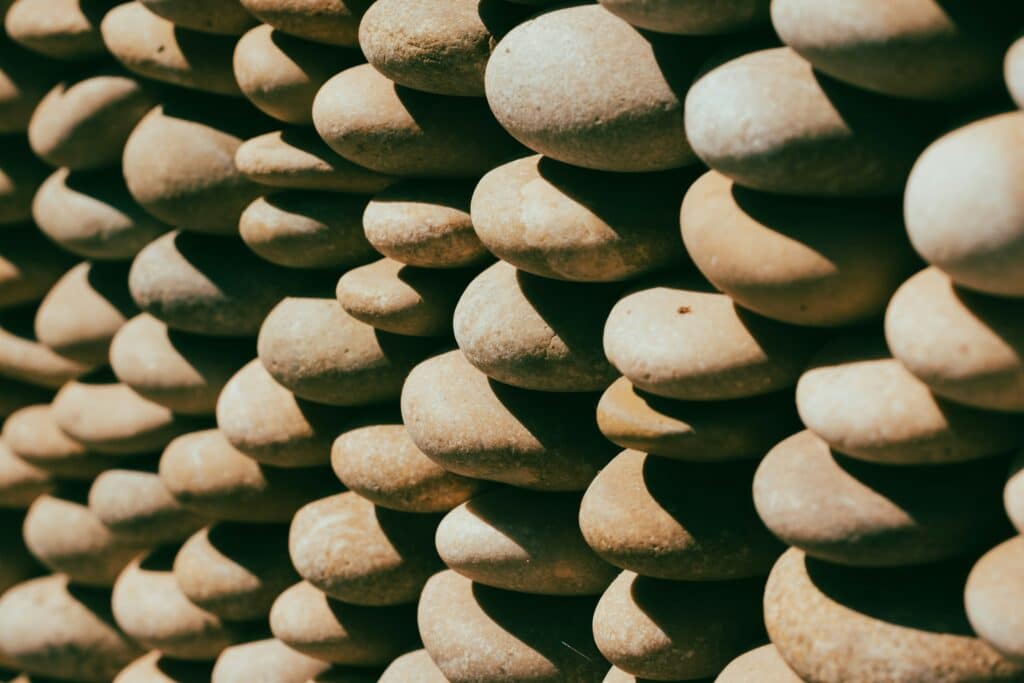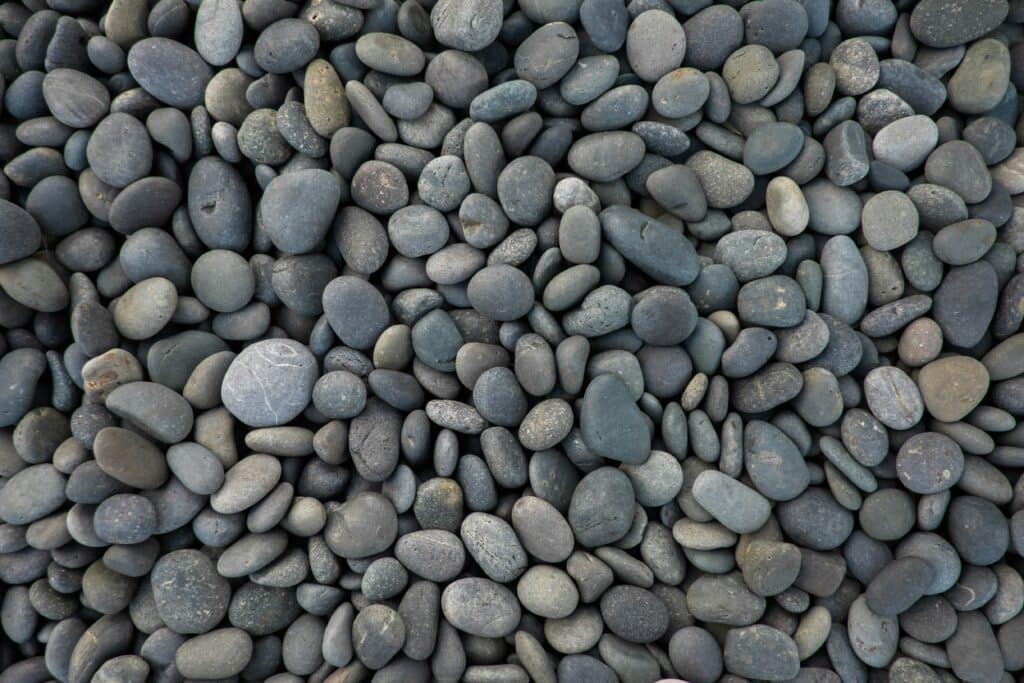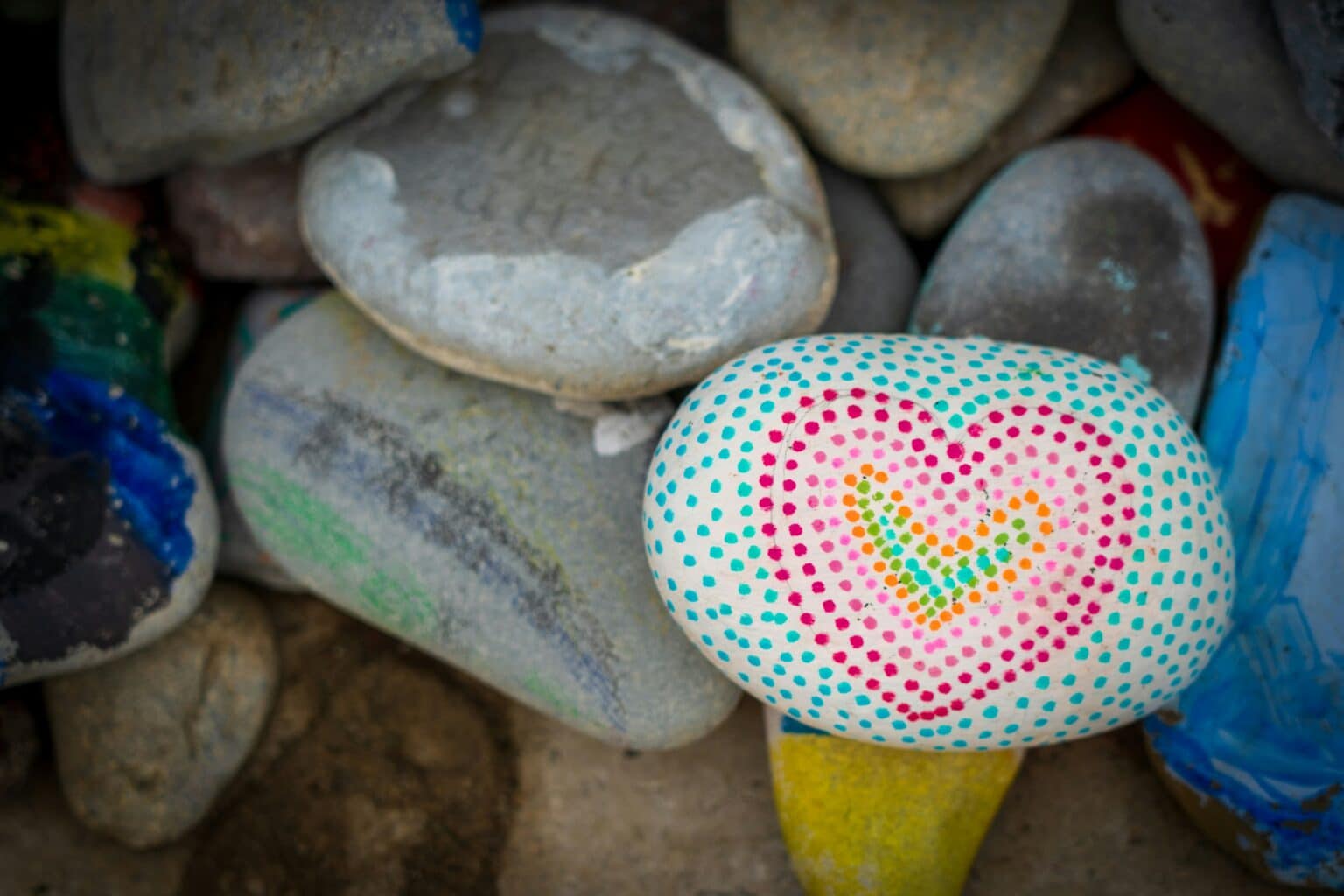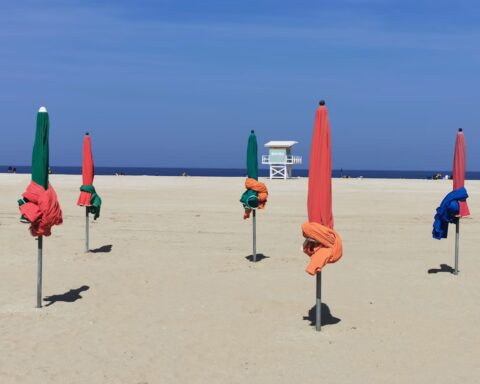In Japan, China and South Korea, a new trend that is as surprising as it is original is galvanising the younger generation: ‘Pet Stones’. Disguised, dressed up and pampered, these pebbles are seen by their owners as a remedy for loneliness and stress, without the constraints of an animal. Here’s how it works.
Gone are the days of walking your dog before work and expensive cat food. Too restrictive and requiring increased attention, pets are no longer considered our best friends for a certain section of the Asian population. Too much time required and too much energy spent. So, since the health crisis, young working people in Japan, China and South Korea have turned to pebbles, like those you might find at the edge of a beach, as life partners.
The idea is to buy a polished pebble for a few coins, which the owners then paint, make up, dress up and give a nickname to like a doll. These customisable pebbles find their place in the home in a small space that can be fitted out at minimal cost. They can even become part of a family of stones. Far less restrictive than a pet, since these objects are clean and immortal and never leave their home.
Attention and discussion
For their owners, Pet Stones are a way of keeping busy, relaxing and filling a certain emotional void. ‘I sometimes put my stone on my bed and pat it. Sometimes I talk to it as if I were talking to myself […]. […] It’s given me a sense of companionship, a presence by my side,’ says Lim, 29, in an interview with The Korea Herald. ‘Obviously, it’s an inanimate object that can’t understand you. But it’s a bit like talking to your dog, and it’s quite relaxing, in a way’, said Lee, 30, as reported by Slate magazine.

And the response has been impressive, particularly among 25-30 year-olds and a large majority of women. On the Chinese social network Xiaohongshu, over 70,000 posts have been recorded on the subject, while the local TikTok Douyin has recorded ten million views on the subject. And the testimonials all focus on the same idea: finding a little tenderness and talking to something to combat loneliness, while being part of a community.
Stress and loneliness rampant in major Asian countries
While this may seem like an innocent pastime and a means of improving mental health, it reveals the climate of stress and isolation that prevails in these societies. In South Korea, although the plan for a 69-hour week instead of a 52-hour week was abandoned at the end of 2023, burn-out and professional exhaustion are real scourges. In fact, the country’s suicide rate is the highest in the OECD.

The same is true in Japan, where ‘killing yourself’ at work seems to be a daily occurrence for many working people. According to a study by the McKinsey Health Institute, the country is ranked among the worst in terms of well-being at work, with a satisfaction score of 25% compared with a global average of 57%.
In China, another trend had emerged earlier in the year, again against a backdrop of loneliness and emotional malaise: that of finding virtual relatives on social networks.
Read also: Matcha tea continues to appeal to the younger generation
Featured photo: © Unsplash















